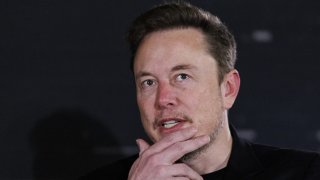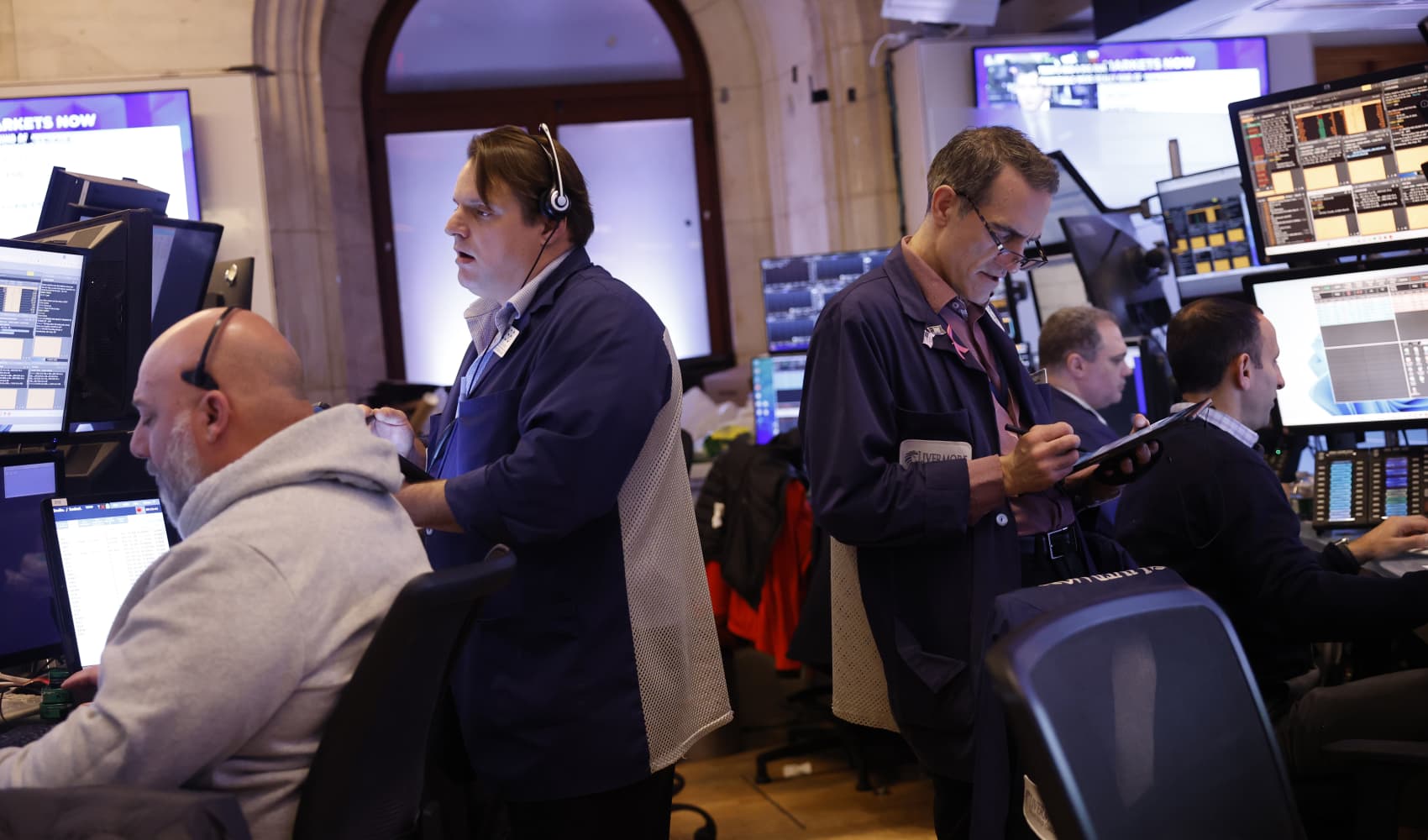
- Tesla and SpaceX CEO Elon Musk is angling for 25% of voting control over Tesla. He currently owns about 13% of the company's stock.
- "I am uncomfortable growing Tesla to be a leader in AI & robotics without having ~25% voting control," Musk wrote in a post on Monday.
- Shareholders previously sued Musk and Tesla in Delaware alleging that Musk's earlier, 2018 pay package was excessive, and the board authorizing it amounted to a breach of fiduciary duty.
Tesla and SpaceX CEO Elon Musk, who also owns the social network X (formerly known as Twitter), said Monday that he wants about 25% of voting control over his electric vehicle business.
Musk already owns around 13% of Tesla, or approximately 411 million shares of the company's 3.19 billion shares in common stock outstanding, as reported in the company's last financial filing for the third quarter of 2023.
That's a large stake, especially considering that Musk sold tens of billions of dollars worth of his shares in Tesla in 2022, largely to finance a $44 billion leveraged buyout of Twitter.
Now, Musk is angling for even more control over Tesla.
Specifically, Musk wrote on Monday, "I am uncomfortable growing Tesla to be a leader in AI & robotics without having ~25% voting control. Enough to be influential, but not so much that I can't be overturned."
"Unless that is the case, I would prefer to build products outside of Tesla," the billionaire executive said on X.
Money Report
"You don't seem to understand that Tesla is not one startup, but a dozen. Simply look at the delta between what Tesla does and GM. As for stock ownership itself being enough motivation, Fidelity and other own similar stakes to me. Why don't they show up for work?"
Tesla did not immediately respond to a request for comment.
Feeling out of the loop? We'll catch you up on the Chicago news you need to know. Sign up for the weekly Chicago Catch-Up newsletter.
Musk's post stood at odds with remarks he previously made suggesting Tesla is already an important artificial intelligence and robotics company, and its value hinges on its prowess in these domains.
In April 2022, Musk predicted during Tesla's first-quarter earnings call that the company's humanoid robot, Optimus, "ultimately will be worth more than the car business and worth more than full self-driving."
Tesla unveiled an early Optimus prototype at Tesla AI Day in September that year, and Musk said in a post around that event, "The point of AI Day is to show the immense depth & breadth of Tesla in AI, compute hardware & robotics."
More recently, on Dec. 27, 2023, Musk criticized Craig Irwin, senior research analyst at Roth Capital, who appeared on CNBC's "Closing Bell Overtime," saying he thought Tesla was "egregiously overvalued," especially compared with Japanese auto giant Toyota.
Bristling at the comparison to a large competitor that has sold more hybrid electric vehicles than battery electric models, Musk said in a post on X, "He has the wrong frame of reference. Tesla is an AI/robotics company."
While Tesla's last annual or 10-K filing showed that around 95% of its revenue came from its "automotive" segment in 2022, in its third-quarter 2023 financial filing, the company described its business as "increasingly focused on products and services based on artificial intelligence, robotics and automation."
Even on Monday morning, Musk posted a video clip on X showing the Optimus robot in development folding laundry at a table, although the robot was remote-operated and not autonomous.
Musk's wish to control even more of Tesla will undoubtedly add to the pressure on Tesla's board of directors in 2024.
In addition to determining appropriate CEO and director compensation, Tesla's board is already facing some investors' concerns over several issues.
Some investors and lawmakers have expressed concerns over: Musk's split focus and use of company resources as he continues to run SpaceX, X Corp. and other ventures alongside Tesla; his divisive political and cultural commentary, including recent tweets disparaging corporate diversity and inclusion initiatives; federal probes involving Musk and Tesla; and worries over drug use by the CEO, recently reported by The Wall Street Journal.
Musk is also in the midst of a trial in Delaware over his earlier $56 billion pay package from Tesla. The unparalleled 2018 CEO compensation plan made Musk into one of the richest people on the planet.
Shareholder Richard J. Tornetta has sued Musk and Tesla, alleging the CEO's compensation was excessive and its authorization amounted to a breach of fiduciary duty by Tesla and its board.
Musk also noted on Monday that Tesla's board of directors is waiting to establish a new compensation plan for him until the Tornetta case is decided in the Delaware Chancery Court.
He wrote: "The reason for no new 'compensation plan' is that we are still waiting for a decision in my Delaware compensation case. The trial for that was held in 2022, but a verdict has yet to be made."
Referring to his call for 25% voting control, he said: "If I have 25%, it means I am influential, but can be overridden if twice as many shareholders vote against me vs for me. At 15% or lower, the for/against ratio to override me makes a takeover by dubious interests too easy."
In an earlier trial in Delaware, several Tesla board members agreed last year to pay back $735 million to the company in a settlement agreement over their own director compensation.
Don't miss these stories from CNBC PRO:
- Tesla versus BYD: Analysts prefer one of them — giving it up to over 70% upside
- Goldman says small caps to beat large caps this year. 10 cheap smaller stocks to buy
- DoubleLine's Gundlach sees 'very painful' economic downturn, S&P 500 may be forming 'double top'
- 'One of the best valuations for AI': Buy the dip in this Big Tech stock, strategist says






